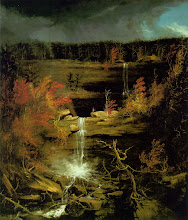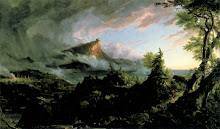Marcuse posits his theory in terms of how it fits into a continuing discussion of aesthetics. He points out that aesthetics is more important than Marx and many post-Marxian thinkers claim. Marx and post-Marxists, he notes, have incorrectly devalued the subjectivity of aesthetics/ beauty, thinking it superfluous to more pressing social needs (and the radical agenda). Marcuse asserts that aesthetics are an essential part of radical change as art represents an "otherness" that reveals and opposes "reality." Art, he says, should contain an element of hope that the world could be better even as it remains cynical as to whether that will actually happen. To Marcuse, beauty gives us the will to live.
Questions: Page 63. I understood the link between fascism and art but not between fascism and literature. What does he mean?
When Marcuse discusses recognition, how is this like Aristotle's recognition?
Values: Literature over painting as the most radical artform.
Europeans still dominate the artistic discussion, but one culture within Europe not better than another. Brecht dominates.
New Values: Contrary to many of his peers, Marcuse values beauty.
Links: Plato's mean (54) and Hegel (55) suggested by these pages.
I see many links to modern art. Warhol seems heavily into anti-beauty movement. If art is everything, then it is nothing. Marcuse seems to question Warhol's legitimacy. The "factory" can be no factory.
Subscribe to:
Post Comments (Atom)
.jpg)
.jpg)
.jpg)
No comments:
Post a Comment